Targeting PIKfyve-driven lipid metabolism in pancreatic cancer
- PMID: 40269157
- PMCID: PMC12176661
- DOI: 10.1038/s41586-025-08917-z
Targeting PIKfyve-driven lipid metabolism in pancreatic cancer
Abstract
Pancreatic ductal adenocarcinoma (PDAC) subsists in a nutrient-deregulated microenvironment, making it particularly susceptible to treatments that interfere with cancer metabolism1,2. For example, PDAC uses, and is dependent on, high levels of autophagy and other lysosomal processes3-5. Although targeting these pathways has shown potential in preclinical studies, progress has been hampered by the difficulty in identifying and characterizing favourable targets for drug development6. Here, we characterize PIKfyve, a lipid kinase that is integral to lysosomal functioning7, as a targetable vulnerability in PDAC. Using a genetically engineered mouse model, we established that PIKfyve is essential to PDAC progression. Furthermore, through comprehensive metabolic analyses, we found that PIKfyve inhibition forces PDAC to upregulate a distinct transcriptional and metabolic program favouring de novo lipid synthesis. In PDAC, the KRAS-MAPK signalling pathway is a primary driver of de novo lipid synthesis. Accordingly, simultaneously targeting PIKfyve and KRAS-MAPK resulted in the elimination of the tumour burden in numerous preclinical human and mouse models. Taken together, these studies indicate that disrupting lipid metabolism through PIKfyve inhibition induces synthetic lethality in conjunction with KRAS-MAPK-directed therapies for PDAC.
© 2025. The Author(s).
Conflict of interest statement
Competing interests: A.M.C. is a co-founder and serves on the scientific advisory board of Esanik Therapeutics, which owns proprietary rights to the clinical development of ESK981. Esanik Therapeutics did not fund or approve the conducting of this study. A.M.C. is a co-founder and serves on the scientific advisory board of Medsyn Bio, Lynx Dx and Flamingo Therapeutics. A.M.C. serves as an advisor to Tempus, Proteovant, Aurigene Oncology, RAPTTA Therapeutics and Ascentage Pharmaceuticals. A.M.C., Y.Q., C.A.L., C.C., Y.B., K.D., Z.W. and C.L. are listed as inventors on the following patents pertaining to the development of methodologies and compounds targeting PIKfyve in diseases: PCT: PCT/US2021/057022 (A.M.C. and Y.Q.); PCT: PCT/US2024/017088 (A.M.C. and Y.Q.); PCT: PCT/CN2024/087809 (A.M.C., Y.Q., Z.W., K.D. and C.L.), US patent no: 63/537,996 (A.M.C., Y.Q. and Y.B.), US patent no: PCT/CN2024/078381 (C.A.L., A.M.C., K.D., Y.Q., Z.W. C.L., and C.C.). In the past three years, C.A.L. has consulted for Astellas Pharmaceuticals, Odyssey Therapeutics, Third Rock Ventures and T-Knife Therapeutics, and he is an inventor on patents pertaining to KRAS-regulated metabolic pathways, redox control pathways in pancreatic cancer and targeting the GOT1-ME1 pathway as a therapeutic approach (US patent no. 2015126580-A1, 2015; US patent no. 20190136238, 2019; and international patent no. WO2013177426-A2, 2015). The remaining authors declare no competing interests.
Figures







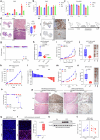
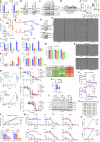
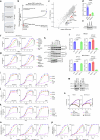





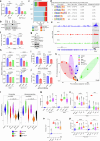
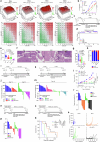
Update of
-
Targeting PIKfyve-driven lipid homeostasis as a metabolic vulnerability in pancreatic cancer.bioRxiv [Preprint]. 2024 Mar 20:2024.03.18.585580. doi: 10.1101/2024.03.18.585580. bioRxiv. 2024. Update in: Nature. 2025 Jun;642(8068):776-784. doi: 10.1038/s41586-025-08917-z. PMID: 38562800 Free PMC article. Updated. Preprint.
References
MeSH terms
Substances
Grants and funding
- R01 CA148828/CA/NCI NIH HHS/United States
- U2C CA271854/CA/NCI NIH HHS/United States
- F30 CA288093/CA/NCI NIH HHS/United States
- R35 CA231996/CA/NCI NIH HHS/United States
- R01 CA245546/CA/NCI NIH HHS/United States
- T32 GM150581/GM/NIGMS NIH HHS/United States
- U54 CA274371/CA/NCI NIH HHS/United States
- R01 CA248160/CA/NCI NIH HHS/United States
- T32 GM007863/GM/NIGMS NIH HHS/United States
- R01 CA244931/CA/NCI NIH HHS/United States
- U01 CA274154/CA/NCI NIH HHS/United States
- R01 NS129198/NS/NINDS NIH HHS/United States
- R37 CA237421/CA/NCI NIH HHS/United States
- P30 CA046592/CA/NCI NIH HHS/United States
- T32 GM145470/GM/NIGMS NIH HHS/United States
LinkOut - more resources
Full Text Sources
Medical
Miscellaneous

